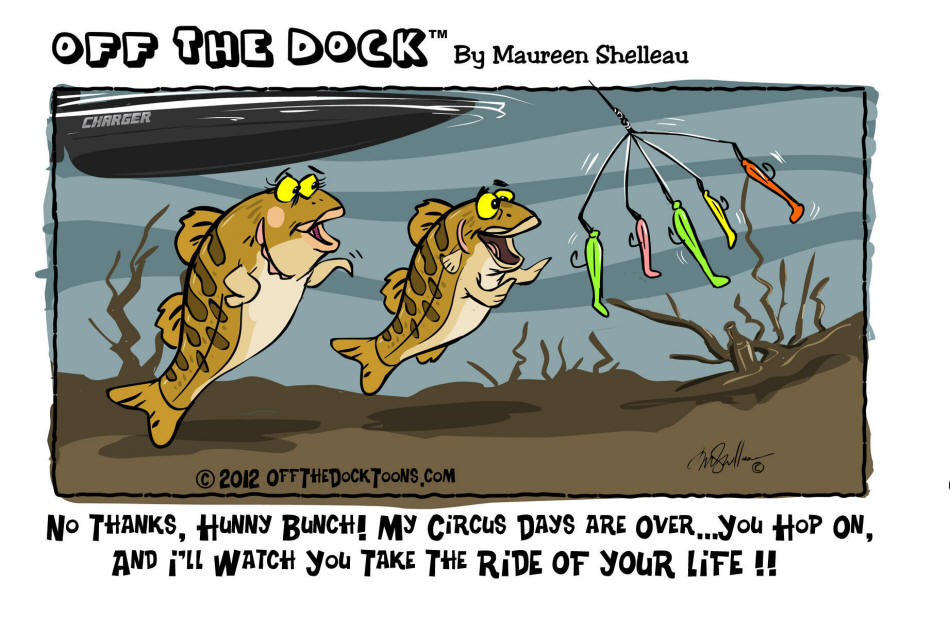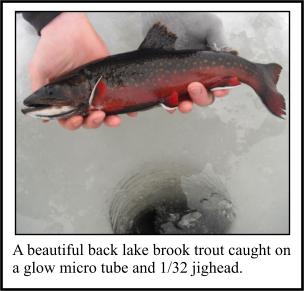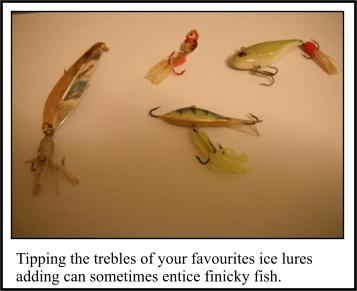|

Ontario Campgrounds
|
 Winter
Trout Tips! Winter
Trout Tips!
 By:
Tyler Dunn
Tyler Dunn Guiding By:
Tyler Dunn
Tyler Dunn Guiding
Shallow
Early ice and last ice are absolutely the best
times for shallow trout. When targeting trout in
shallow water many assume stealth is always the
best plan. Not true. Often trout are looking for
a commotion. Usually commotion has some kind of
food involved and more often than not if an
aggressive trout is nearby it will come for an
investigation. Trout can in fact be one of the
most aggressive feeding fish an angler can chase
through the ice. Lake trout for instance are
most commonly fished by most anglers in water
from 40-80 feet throughout the entire winter on
typical feeding areas like reefs and deep flats.
Often these are favourite spots during the open
water season. No doubt, you will catch them
there but there are
 certain
times the shallows are teaming with active lake
trout. certain
times the shallows are teaming with active lake
trout.
I have spent the past couple years fishing a
couple spectacular brook trout lakes found in
the interior of Lake Superior Provincial Park.
If there is one thing I have learned is that
brook trout absolutely love to hang around and
feed in wood filled areas. Fallen trees, beaver
houses, stumps and brush piles are brook trout
havens. These areas offer places to hide and
ambush unsuspecting prey. Micro tubes and small
buckshot spoons are staples in my shallow water
jigging arsenal as well as a plain old dew worm
or minnow below a split shot or dropper rig
under a Williams Wobler. I dead stick this
presentation with a rod or under a thermal
tip-up.
Deep
Fishing deep for trout usually entails chasing
lakers in deep, crystal clear lakes. When
fishing deep, I like to fish with an increased
amount of patience on a specific spot like a
rock reef. These are obvious feeding areas and
will definitely receive some fish activity. It
can literally be a matter of being there at the
right time. Mid winter lakers are famous for
suspending over deep water and crashing in on
rocky reefs feeding on baitfish during periodic
flurries throughout the day. Typically these
reefs top out at 30-40 feet with deep water
flats extremely close.
Monster brook trout can also be caught deep and
I have tangled with my fair share of brook trout
in 20 plus feet of water but the majority do
come in less. When I am fishing deep though, I
will usually target the middle of the water
column, looking for a big bite. Bigger brookies
seem to take on the characteristics of lake
trout and suspended during the winter months.
These trout are often on suicidal gorging
missions and as long as you give the fish an
opportunity to grab it, trust me it will.
Swimming lures such as a Jigging Rapala or Storm
Wildeye are dynamite lures for tricking winter
brookies. The flash and rattle of a Lindy Darter
is another favourite and it is expected to coax
a few big fish each season.
 Plastics Plastics
If there is one thing I have learned about trout
over the last decade is they love artificial
plastic baits. My most productive outings each
year almost always have some kind of artificial
plastic involved. A tube is probably the most
versatile plastic an ice angler can use. I tend
to use tubes under 3 inches for brook trout and
splake while tubes 3 inches and longer, I save
for taming lake trout. Anglers that frequent
lakes, rivers or parks with no live bait
restrictions should take advantage of the
convenience and fishing catching capabilities of
Berkley GULP! minnows. I use various sizes and
colours but 3” and 4” in black/white patterns
work wonders on trout. Tip your favourite ice
spoon with a GULP! and either jig or dead stick
in a rod holder with a loose drag.
|